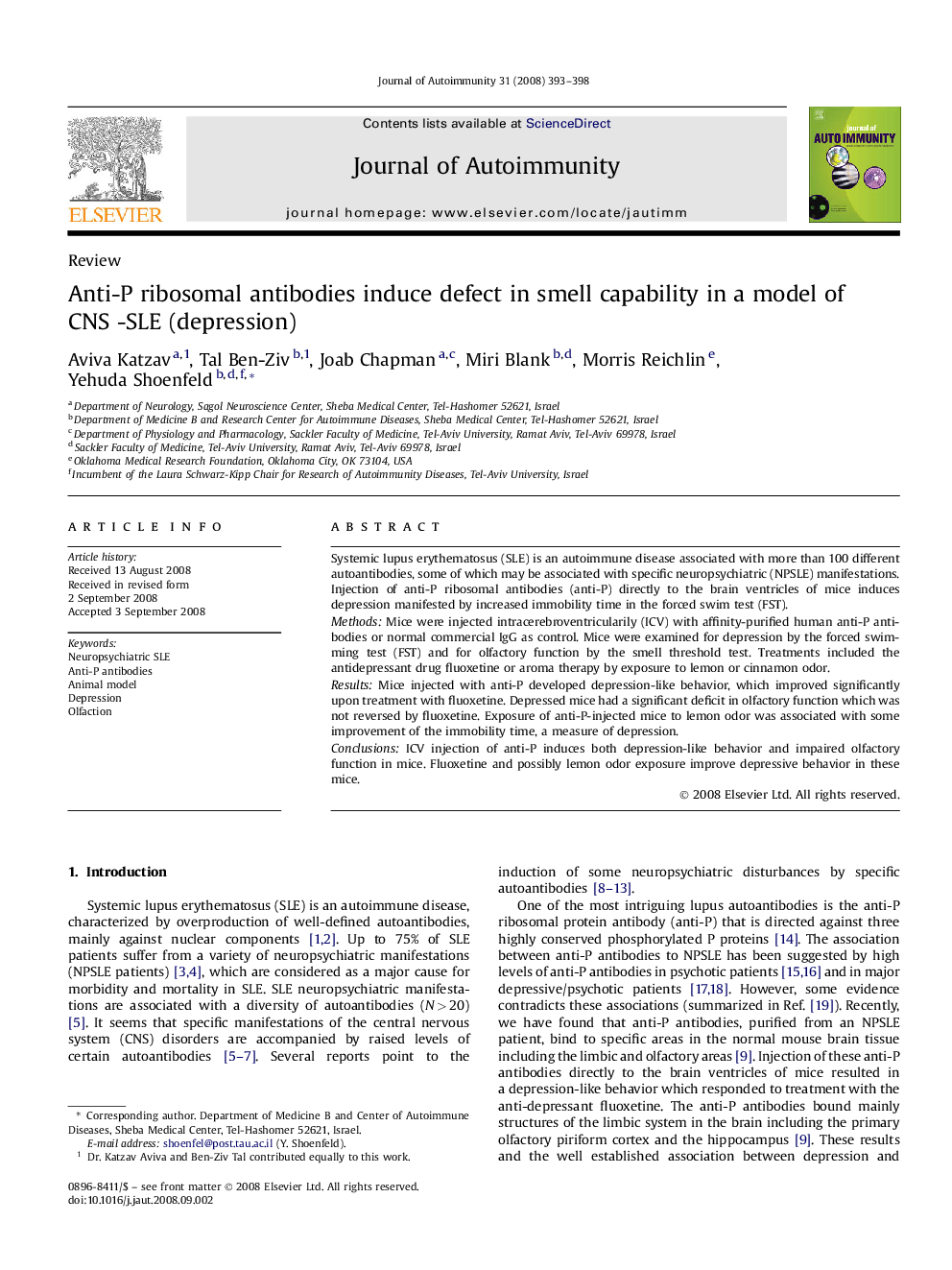| کد مقاله | کد نشریه | سال انتشار | مقاله انگلیسی | نسخه تمام متن |
|---|---|---|---|---|
| 3368144 | 1218772 | 2008 | 6 صفحه PDF | دانلود رایگان |

Systemic lupus erythematosus (SLE) is an autoimmune disease associated with more than 100 different autoantibodies, some of which may be associated with specific neuropsychiatric (NPSLE) manifestations. Injection of anti-P ribosomal antibodies (anti-P) directly to the brain ventricles of mice induces depression manifested by increased immobility time in the forced swim test (FST).MethodsMice were injected intracerebroventricularily (ICV) with affinity-purified human anti-P antibodies or normal commercial IgG as control. Mice were examined for depression by the forced swimming test (FST) and for olfactory function by the smell threshold test. Treatments included the antidepressant drug fluoxetine or aroma therapy by exposure to lemon or cinnamon odor.ResultsMice injected with anti-P developed depression-like behavior, which improved significantly upon treatment with fluoxetine. Depressed mice had a significant deficit in olfactory function which was not reversed by fluoxetine. Exposure of anti-P-injected mice to lemon odor was associated with some improvement of the immobility time, a measure of depression.ConclusionsICV injection of anti-P induces both depression-like behavior and impaired olfactory function in mice. Fluoxetine and possibly lemon odor exposure improve depressive behavior in these mice.
Journal: Journal of Autoimmunity - Volume 31, Issue 4, December 2008, Pages 393–398